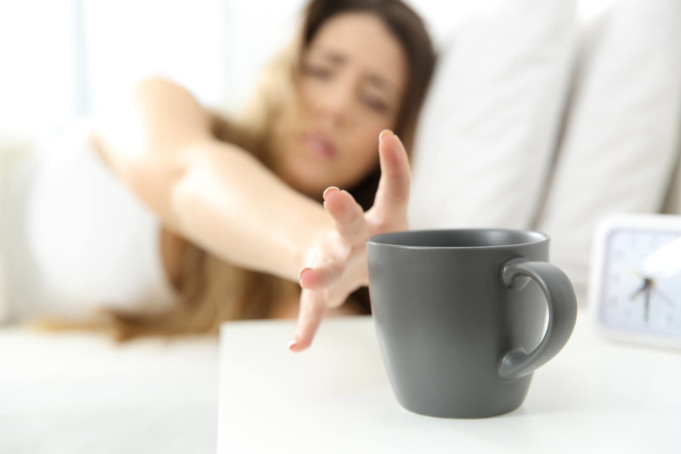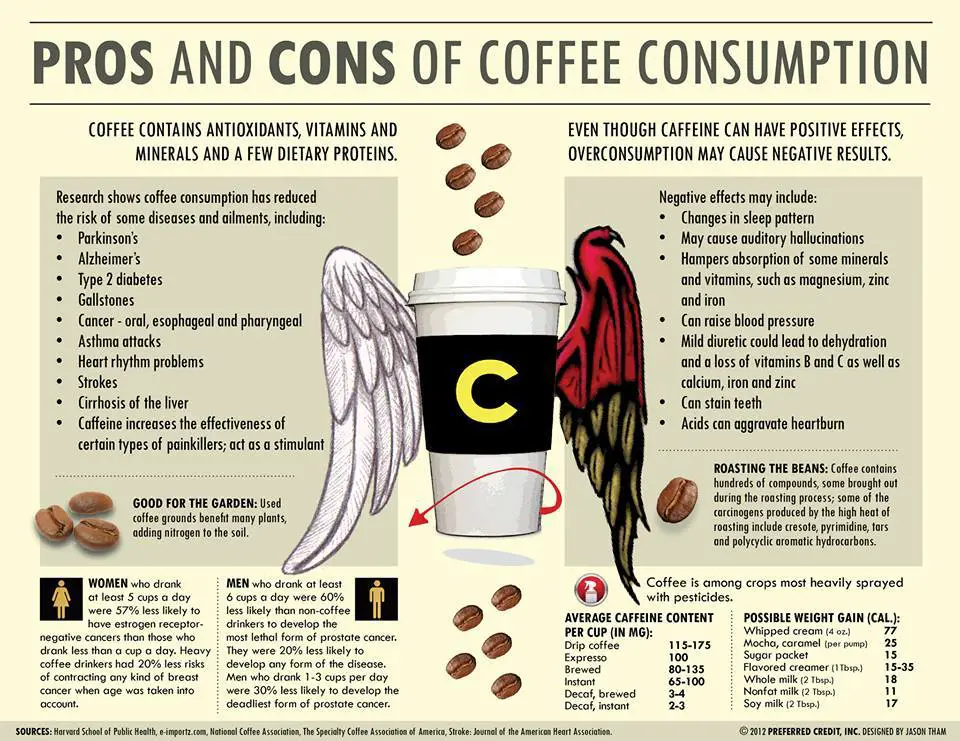Caffeine addiction is the harmful use of caffeine for a particular period of time, which has a negative effect on your health and other aspects of your life.
Some individuals only focus on the benefits of taking caffeine; others do not know that there are some negative effects to this drug like anxiety and sleep disruption.
Some people find it very difficult to sleep at bedtime after taking coffee to increase energy. Being one of the most widely used drugs, some persons don’t believe that one could be addicted to caffeine.
What to know about caffeine addiction
The most common source of caffeine is coffee. However, caffeine is also present in different foods, so you might be taking too much of it without you even knowing. Caffeine is among the most commonly used addictive substances.
Some persons easily mistake caffeine dependence and withdrawal for other conditions. They are both very unpleasant, psychologically, and physically.
Mood disorder symptoms are similar to the symptoms of caffeine withdrawal. Caffeine disorder can cause different health issues.
A safe way to quit caffeine without experiencing withdrawal symptoms is by increasing the mixture of your non-caffeinated drinks to your caffeinated beverages.
Other symptoms that may be mistaken for caffeine withdrawal symptoms include
What are the Symptoms of Caffeine Addiction?
Individuals who use caffeine enjoy the energy that it provides, but when you become addicted to it, there are some symptoms that you may experience.
The symptoms include;
- Stomach upset
- Increased urination
- Restlessness
- Excitement
- Increased heart rate
- Nervousness
- Muscle twitch
- Sleep difficulty
- Flushed face
- Agitation
What are the Symptoms of Caffeine Withdrawal?
When the body is dependent on caffeine, excluding it from your diet may trigger some withdrawal symptoms. Withdrawal symptoms usually begin twelve to twenty-four hours after stopping caffeine. Some of the symptoms include;
- Tremors: people who depend on caffeine tend to get tremors during withdrawal. A common side effect of drinking too much caffeine is having shaky hands. The tremor that is often related to caffeine withdrawal occurs in the hand, and it usually lasts for nine days, so you should see a doctor if the tremors exceed this period.
- Depressed Mood: caffeine has the ability to raise moods. One study noted that a number of individuals who took caffeine frequently found out that 0.68mg per pound of the weight of the body led to a more positive mood compared to placebo. Caffeine boosts feelings of well being, so by cutting it out; it may lead to depressed mood in regular consumers.
- Headache: withdrawal also causes increased blood flow to the brain, which leads to headaches in some individuals. Though withdrawal causes headaches, caffeine is still used to treat migraines.
- Fatigue: coffee is a natural stimulant in the body, and when it wears off, the individual becomes very tired. Most coffee users depend on it to boost their daily performance. But removing from the individual’s diet may cause fatigue.
- Anxiety: A cup of coffee may trigger feelings of anxiety in individuals who are sensitive to caffeine. The body can be psychologically and physically dependent on caffeine, and it may cause anxiety during withdrawal.
- Irritability: individuals that are psychologically or physically dependent on this stimulant may feel irritated when withdrawaling from this stimulant.
- Difficulty concentrating: some individuals tend to take tea or coffee to help boost concentration. Withdrawal from caffeine can make you have a tough time concentrating on a particular task.
How can Caffeine Addiction Look Like and Feel Like Other Disorders?
Also, the stimulating effect of caffeine can trigger some behavioural change and visible symptoms that may look and feel like, and therefore be easily mistaken for other conditions and disorders.
Therefore, if your doctor is assessing you for any disorders, it is essential to let your psychologist or doctor know the amount of caffeine you consume, as well as the frequency of your intake.
For instance, caffeine intoxication causes symptoms that can be easily mistaken for anxiety disorders such as panic attacks.
Too much intake of caffeine can also worsen anxiety disorder symptoms in affected people, aggravating feelings of worry, intensifying racing thoughts, making it harder to quiet the mind, intensifying agitation and shakiness, preventing relaxation, and depriving one of quality (or any) sleep.
However, you might experience your caffeine use as calming and relieving of anxiety (though temporary) just like other addictions. You feel and even believe it helps you cope.
Some other health conditions that can be confused with caffeine intoxication are;
- Viral illnesses
- Sleep disorder
- Intoxication from other substances(sedatives, amphetamines, hypnotics)
- Panic disorder
- Sleep disorder
- Manic episodes
- Generalised anxiety disorder
- Sinus conditions
- Side effects such as Akathisia that is medication-induced
It can also be easily confused with, and worsen symptoms of withdrawal from other substances like cocaine and amphetamines.
Can Caffeine Induce Other Disorders?
When a substance induces a disorder, although it was triggered by substance use, it possesses all the properties of the disorder, rather than merely being an effect of addiction or withdrawal. Caffeine induced disorders include;
- Caffeine-induced anxiety
- Caffeine-induced sleep disorder
How Can Caffeine Affect Your Health?
The effect of caffeine on your body is numerous, most of which are potentially dangerous to your health.
Caffeine is not recommended for people with cardiovascular problems because it causes abnormalities in your heartbeat and also increases the heart rate. It also increases the risk of osteoporosis as it affects bone density and increases blood pressure.
What Can You Do If You Think You Might Be Addicted to Caffeine?
When you’re addicted to caffeine, you not only use it in excess, you also solely depend on it to cope, not minding the negative effects. You can go through the following steps to figure out if you are addicted to caffeine.
- Pay attention to how you feel: write down any side effects your experience when taking caffeine and also take note of any withdrawal symptoms you notice when you miss a regular caffeine dose.
- Assess your intake: calculate how much caffeine you consume on a typical day, including lattes, cappuccinos, and gourmet espresso, which are usually much stronger than soda, regular drip or instant coffee, and other common drinks or foods that contain caffeine.
- Consider the effects: consider the impact of caffeine plus withdrawal symptoms you tend to have if you miss a dose and how they impact your functions, feelings, and relationship. For instance, do you have difficulty concentrating if you don’t take caffeine? If you miss a dose of caffeine, do you experience fatigue or headache? When you consume too little or too much caffeine, do you get irritable? Most importantly, do you feel you “need” to consume caffeine to function properly throughout the day?
Next Steps to Consider
You should talk to your doctor if your responses to any of the above questions make you feel uneasy. You should also speak with your physician or gynaecologist about your caffeine consumption if you’re trying to get pregnant, if you’re pregnant, or breastfeeding.
Plus, if you currently have a health condition that might be impacted by caffeine, such as a cardiovascular problem, discuss options with your healthcare provider as soon as possible.
The vicious cycle of addiction that accompanies any addictive substance also occurs in caffeine addiction. Once the effects of caffeine start wearing off, you might experience a sudden drop in energy levels to the extent that you start feeling you can’t keep going without another dose of caffeine.
You may even feel worse during withdrawal; therefore, it’s advisable to reduce your caffeine consumption gradually rather than abruptly to get the most benefits from reducing or quitting caffeine. Your healthcare provider can help you come up with a plan.
If you feel taking excessive amounts of caffeine helps you cop with an ongoing emotional issue, such as anxiety and depression, also speak with your physician about options for treating the condition. The proper treatment could make a huge difference for you.
Caffeine addiction usually overlaps with other behavioural addictions such as sugar addiction, so you may discover that evaluating your caffeine consumption can reveal a whole lot of underlying behaviours that need to be addressed.
If you feel you’re not addicted to caffeine, but you think your intake is a bit on the high side, you can choose to cut it out entirely or reduce it to the barest minimum.
You should try reducing it by ten percent every two weeks to prevent intense headache that follows when you cut down too much or too soon.













